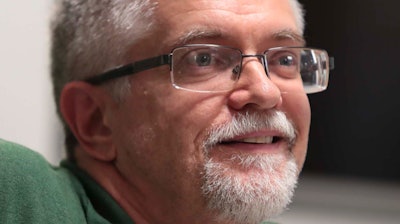Scholarship has nearly always been done from a position of privilege, with respect to the vast majority of the human population, as studying arcane texts or elusive natural phenomena has never been something most people have had time or resources to do. Academic work requires material access to information in libraries, and other resources like computers and (relatively quiet) space in which to write. Iit also entails social privilege--being able to say “no” to claims upon one’s time from members of one’s family, community or institution—and cultural privilege: all the different ways of knowing and writing that not everybody acquires.
Nearly a century ago, Virginia Woolf famously pointed out, in the essay whose title I borrow here, how difficult it has been for women to develop as writers; this is also true of other subaltern groups. Gramsci, toiling away at his notebooks in his prison cell, and other geniuses who have done important research and literary creation under the hardest circumstances, are the exceptions. Most of us mortal academics need time and space, and sometimes specialized equipment, to study and write.  Dr. James Seale Collazo
Dr. James Seale Collazo
I write from a location in academia’s complicated social and cultural hierarchy with a peculiar combination of privilege and its opposite: a tenured associate professor of education teaching 9th grade World History, a leader in the University of Puerto Rico’s faculty association which hopes to become a collective bargaining agent for all UPR faculty. For 4 years I was an academic senator at UPR’s flagship campus, which teeters precariously at the edge of the R2 classification. Like all UPR faculty, we carry a 12-credit teaching load, and in the midst of UPR’s fiscal crisis, a basic teaching load of 15 credits has been spotted more than once on the horizon.
Far beyond the university and the island I inhabit, many more institutions, including historically Black colleges and universities, community colleges, and small undergraduate institutions are being squeezed by neoliberal economic policies and demographic change, with the threat of downsizing or outright closure looming over many private institutions as well as UPR campuses.
Despite being immensely privileged with respect to other K-12 teachers, whose ranks I left to join academia, and to the growing number of non-tenure-track colleagues at UPR, my teaching and activist commitments leave me very little time for scholarly production. Those commitments are choices and my more academically productive colleagues at UPR mostly don’t devote as much time to their students or to our political situation as I do.
This is why the Faculty Resource Network’s Scholar-in-Residence Program has been crucial for me, as it has for dozens of other similarly located scholars who have participated in it. Being a visiting scholar means having several weeks of fairly comfortable lodging in Manhattan, away from our many other responsibilities, with access to NYU’s wealth of information and technological resources. It helps us advance research and writing projects that would otherwise languish on our more wishful to-do lists. It has been the closest I’m going to get to a sabbatical, and a crucial site for academic production for professors like me, whose commitments make it extremely difficult to set aside the regular writing and study time my friends at R1 universities tell me they need to keep up with their disciplines and produce the research that’s expected of them.
I know how privileged I am, and I make it my business to share that privilege as widely as possible. Last year, I got the UPR-RP Academic Senate to approve a resolution making the FRN’s programs available to the several dozen full-time non-tenured professors at UPR-RP. An FRN membership lets financially pressed universities like mine leverage NYU’s resources to offer great opportunities for professional development and scholarly production. For me, it has been crucial to maintaining a modicum of academic solvency together with the intensity of my teaching and activism, while giving my aging body enough rest and exercise to keep it all going.
Dr. James Seale Collazo is an associate professor of education at the University of Puerto Rico, Rio Piedras.
This is one in a series of articles about New York University's Faculty Resource Network.















